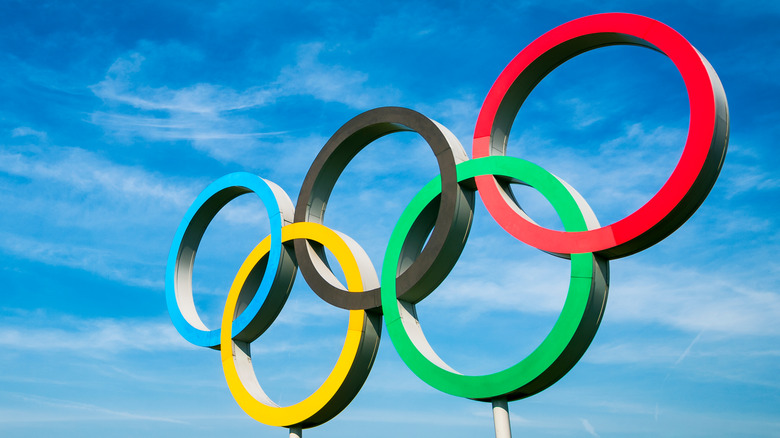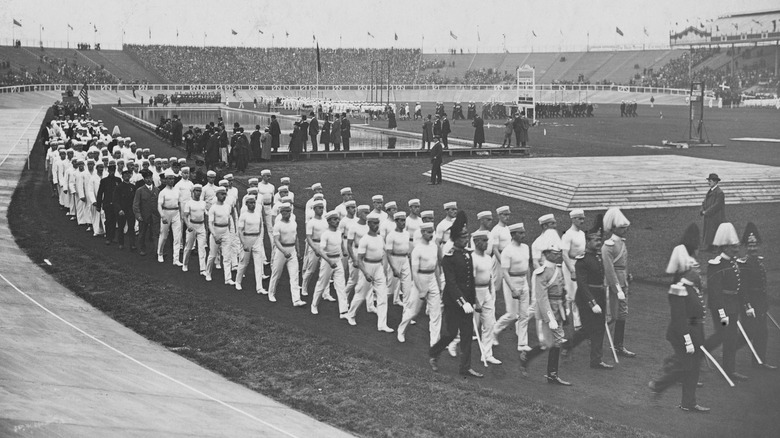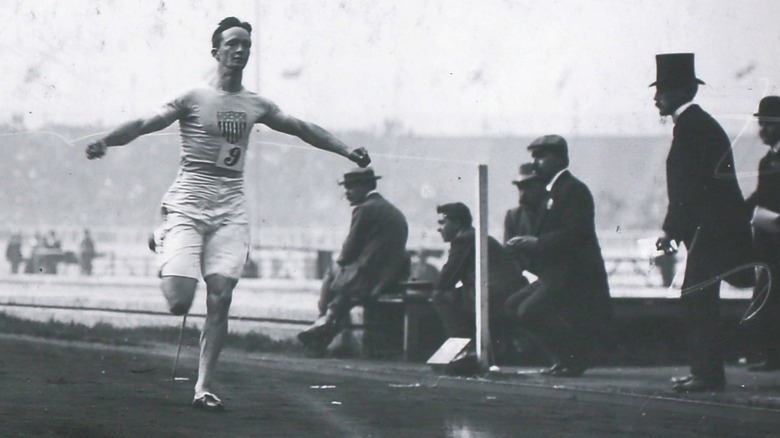How A Calendar Mishap Almost Threatened Russia's Performance In The 1908 Olympics
Nowadays the Olympics are a roughly two-week-long festival where the world's greatest athletes come together and compete for their countries. It is the ultimate display of athleticism. In 1908, however, the modern Olympic Games were still in their infancy, with the first being held just 12 years earlier in 1896 (via History). London was the host city in 1908 and the Olympics officially lasted from April 27 to October 31 (via Russia Beyond).
Since the Olympics were still new, record keeping for the games left a lot to be desired. Despite the poor reporting, it is believed that Russia may have arrived two weeks late due to a simple calendar mistake (via Russia Beyond).
Today it would be unfathomable that an Olympic team would arrive late to an Olympics game, especially a country of Russia's size and prominence at more recent Olympics. There is some debate as to whether or not they did arrive late, but how could this have happened in the first place?
A calendar switch
When Julius Caesar made the Julian calendar the most popular calendar used throughout much of the world over 2,000 years ago, its leap year system was flawed, leading to the calendar falling out of sync with the seasonal equinoxes (via SI). In 1592, to account for the shift away from the seasonal equinoxes, Pope Gregory XIII signed the Gregorian calendar into effect for Christian nations, with one of the main reasons being to make scheduling Easter easier (via Britannica). Getting countries to adopt the new calendar was not an easy task.
Catholic countries were quicker to adopt, seeing as how it was a decree from the pope, but eventually non-Catholic nations began adopting it as well. By 1908 most countries had adopted and switched over to the Gregorian calendar, but there was one notable holdout: Russia. It would be another 10 years before they would make the switch following the Russian revolution and the Bolsheviks rising to power (via SI).
Two weeks late
This difference in calendar choice could have resulted in Russia showing up two weeks late to the games. In 1908 the Olympics lasted six months. Athletes wouldn't stay for its entirety; rather, they just showed up for their own events. The Russian team competing in the shooting competition showed up to London a couple days before the event was set to start on July 11. However, they don't appear in the event standings because they arrived according to the Julian calendar that was no longer in use in England (via Russia Beyond). They actually arrived after the event had concluded.
Another factor influencing the Russian team is that Russia had no official Olympic delegation at the time. Nikolai Panin-Kolomenkin, who won gold for Russia in figure skating at the 1908 games, wrote in his memoirs: "Almost every foreign country had a national Olympic committee that provided constant cooperation among the different sports organizations of their countries. But in Russia ... we had only separate athletes at the 1908 Olympics who were going there with the support of their clubs, or just on their own" (via Russia Beyond). Despite the lack of organization, Russia would end up with Panin-Kolomenkin's gold as well as two silver medals in wrestling at the 1908 games, according to SI. In 1911 Russia created an official Olympic committee making sure that the mishaps from 1908 would not be repeated.


